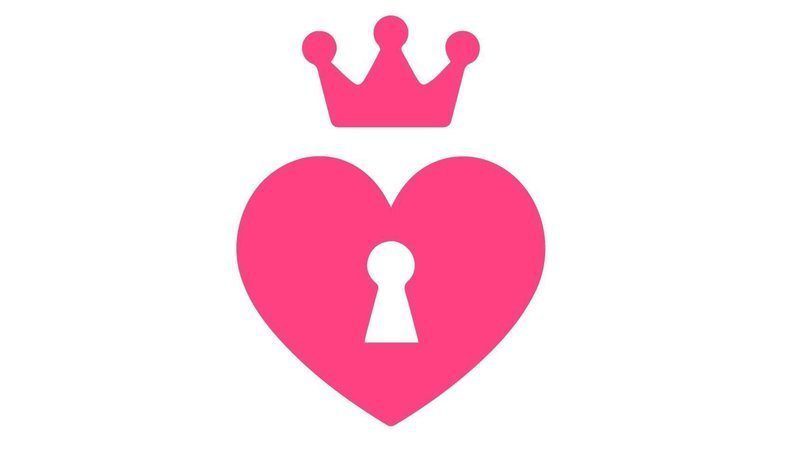Happy Easter, folks! Remember to enjoy food and good company, but keep a healthy distance while in quarantine. Mental closeness in turn is more important than ever, so why not call friends or relatives you haven’t contacted in a while? Bitcoin is also an excellent gift in these times, since it can not be contaminated by viruses unlike cash.
Even in dire times like these dark clouds seem to have silver linings, which we will study this week. As the corona crisis has aroused an increasing amount of cyberattacks and crypto extortions targeting hospitals and healthcare, even the Internet’s criminal underworld has grown concerned and started combating these corona extortionists and other scoundrels.
In other news we have the growing amount of both big and small bitcoin owners, apparently fuelling their tanks for the upcoming block reward halving. Furthermore we will talk about how Bitcoin continues to be used primarily for legal rather than illegal activities, and why blockchain may not be so well-suited for Internet voting.
Last week’s news can be found here.

The amount of BTC whales has grown
The amount of Bitcoin whales, meaning large owners, has grown to its highest level in two years. According to Glassnode collecting Bitcoin and cryptocurrency data, there are currently just under 1 850 parties owning at least 1 000 bitcoins.
The growing amount of whales is probably related to Bitcoin’s upcoming block reward halving. The number is nearly the same as during the second quarter of 2016 before the previous halving.
“This trend implies that despite an uncertain market environment, whales remain confident that now is a good time to be accumulating BTC, suggesting that they believe there is further room for growth,” Glassnode reports.
According to Glassnode also smaller owners have started accumulating more bitcoins. Numbers indicate the amount of wallets containing at least one bitcoin has also grown.

Bitcoin used more for legal than illegal activity
Cryptocurrencies are still primarily used to buy legal stuff, reports a fresh study by Visual Objects. Despite this the myth of Bitcoin as a criminal tool continues to persist.
Visual Objects interviewed 983 people who knew about cryptocurrencies and 157 cryptocurrency users. The first group was asked what they assumed cryptocurrencies are used for. Users in turn were asked what they actually use crypto for.
40% of the first group assumed crypto was used to buy stocks. 30% in turn believed crypto was used for illegal products such as weapons and drugs.
Crypto users in turn had a very different view. 38% of users reported mainly buying food with crypto, while 34% bought clothes. Only 15% of responders had bought weapons and 11% drugs.
The study provides further data on how the use and infrastructure of cryptocurrencies has evolved. A decade ago illegal use may have been more common, but thereafter crypto has been increasingly used for legal activity while illegal activity has declined. Cash still remains the most used form of money among criminals.

The adult industry and games thrive in corona crisis
While the corona crisis has clearly decreased cryptocurrency payments, certain sectors have seen an increase of revenue during the crisis. According to CoinGate, a Bitcoin and cryptocurrency payment service, crypto has been increasingly used to buy adult entertainment and games.
As an example CoinGate points out that the adult entertainment site ManyVids has witnessed a rise of 17% in crypto payments. Other companies in the sector have at best gained a 36% increase in crypto revenue.
CoinGate also reports that the amount of BTC payments has grown a total of roughly 13%. Also other cryptocurrencies have gained wider use in these services. Ethereum use has risen 14% and Bcash 12%.
“People might start using cryptocurrencies more often, especially when traditional markets show that they can be much more volatile than Bitcoin. And that is definitely a positive sign for crypto adoption,” CoinGate concluded.

Microsoft fights against crypto extortionists
The corona crisis has made many immoral actors notice how cyberattacks against healthcare can be profitable. Now IT giant Microsoft has joined the battle against extortionists and other scoundrels plaguing the healthcare sector.
“During this time of crisis, as organizations have moved to a remote workforce, ransomware operators have found a practical target: network devices like gateway and virtual private network (VPN) appliances. Unfortunately, one sector that’s particularly exposed to these attacks is healthcare,” Microsoft reports.
To improve the situation Microsoft has started spreading free education about data security. The company studies healthcare systems and reports different weaknesses directly to their administrators. Hospitals are also encouraged to keep their VPNs, firewalls and other necessary systems updated.

Even the darknet combats corona
The corona crisis has also brought out the moral spine of the Internet’s underworld, at least what comes to some darknet actors. Several hidden services and darknet markets have taken measures to combat corona and hinder criminals trying to abuse the crisis for personal gain.
The popular darknet marketplace Monopoly has started giving permanent bans to all vendors attempting to abuse the epidemic. The marketplace has earlier seen attempts to sell untested medicines and fake protective masks, but now administrators are giving direct bans for such activity.
The phenomenon also extends further than one marketplace. Digital Shadows, a company researching the darknet, has published a report about the criminal underworld’s reactions to the corona crisis. According to Digital Shadows the pandemic has stirred atypical reactions, with many actors sharing information on health and cybersecurity to users and organizations in order to hinder abusing the crisis.
However, even the crisis is not enough to make all criminals act ethically. According to cybersecurity publication BleepingComputer, only two out of seven ransomware distributors have decided not to attack hospitals or healthcare during the crisis.

Internet voting doesn’t work even with blockchain
The American Association for the Advancement of Science has published an official letter to decision-makers of the United States. The letter warns decision-makers about the dangers behind Internet voting. According to the organization Internet voting is not safe, and not even blockchain can make it secure.
“At this time, internet voting is not a secure solution for voting in the United States, nor will it be in the foreseeable future,” the letter by the organization states.
The organization points out that Internet voting carries several risks, such as manipulating results, problems with privacy, different malware and so on. Internet voting also fails to answer other fundamental issues behind voting.
It also seems not even blockchain can remedy the matter. While blockchain can secure the authenticity of information, the technology has no answers to for instance privacy-related questions. Furthermore blockchain also creates new questions which do not apply in traditional systems.
“It’s not a tool built to address the problem that you have,” commented project director Steve M. Newell.

